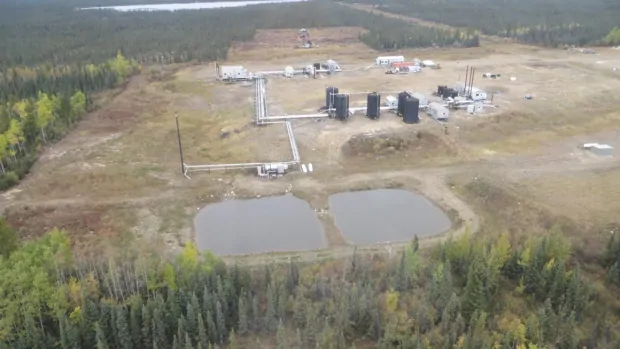Cleanup of Cameron Hills project hangs in balance as Strategic Oil and Gas in receivership

A troubled oil and gas company that has wells in the Northwest Territories has gone into receivership, and the territory’s oil and gas regulator is worried that taxpayers will be left to clean up the property.
Strategic Oil and Gas Ltd. has been under creditor protection for 10 months, but it’s efforts to restructure have failed, it’s directors have resigned and it is now winding down and selling off all of its assets.
But the Office of the Regulator of Oil and Gas Operations for the territory has grave concerns about the company’s plan to transition from creditor protection to receivership. Those concerns are laid out in a Jan. 28 affidavit submitted by OROGO’s chief conservation officer to the Alberta Court handling Strategic’s dissolution.
“Of particular concern to OROGO is the suggestion … that all of the Cameron Hills Wells can safely be left in their current condition for an indefinite period of time, as the transition plan provides that Strategic’s intention to ‘defer previously scheduled suspension and abandonment work,'” Pauline de Jong says in her affidavit.
Another worry is that Strategic’s plan makes no mention of its obligation to comply with an order issued by the N.W.T. regulator late last year.
Outstanding orders
In the Oct. 14, 2019 order from then-regulator Louis Sebert, he told Strategic to repair and test an old well that was leaking deadly hydrogen sulfide gas.
“As the Cameron Hills Field is a sour gas (hydrogen sulfide) field, an uncontrolled release from the I-73 Well, or any other well in the Cameron Hills Field may include the release of H2s (hydrogen sulfide), which is toxic to humans and poses a risk to flora and fauna in the area,” he wrote.
Shortly after, as a temporary measure, Strategic installed a sour gas scrubber, which uses chemicals to remove hydrogen sulfide from the gas escaping the well. Sebert set April 1, 2020 as the deadline for permanently fixing the problem. According to the KPMG monitor handling Strategic’s dissolution, the company is on track to meet that deadline.
In his report, however, the monitor says nothing about Strategic’s ability to meet deadlines Sebert set for final closure of 40 other wells and the pipeline gathering system at Cameron Hills.
H2s (hydrogen sulfide) … is toxic to humans and poses a risk to flora and fauna in the area.– Louis Sebert
Last summer, an MLA raised concerns about taxpayers being saddled with the cost of doing that work.
Frame Lake MLA Kevin O’Reilly pointed out that KPMG, the accounting firm handling the restructuring of Strategic, estimated that the company owed the N.W.T. government $12.4 million in “end of life” obligations associated with the Cameron Hills project. In regulatory filings, Strategic says it has posted $3.9 million in security for the project.
In an email to CBC, the territorial government said it does not know how KPMG came up with the $12.4 million figure.
Restructuring plan rejected
In a restructuring plan Strategic proposed late last year, it said it had reached a proposed deal to sell the Cameron Hills property. But the Office of the Regulator of Oil and Gas Operations identified problems with that plan.
Sebert pointed out that his office was not given a copy of the terms of the purchase and was worried it would relieve Strategic of its obligations to clean up its Cameron Hills operation.
Sebert wrote that his office had reviewed the financial information provided by the prospective purchaser, Tallahassee Resources Inc., and had concerns that it “is not in a financial position to be able to complete the necessary suspension and abandonment of wells and decommissioning of infrastructure.”
The Alberta Energy Regulator also had problems with Strategic’s restructuring plan. According to a report from the monitor overseeing the restructuring, it also issued an order to Strategic. On Jan. 20, it ordered Strategic to post a $48.7 million security deposit for liabilities in that province.
The monitor said he understood that Alberta had no realistic expectation of Strategic paying up and that the step was necessary to engage a program the province has for dealing with so-called “orphan wells” — those owned by companies that do not have the financial resources to decommission them.





